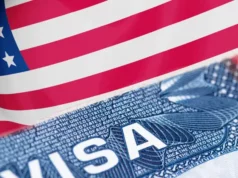In recent years, Nigeria has faced significant economic challenges, including inflation, unemployment, and insecurity, prompting many citizens to seek greener pastures abroad.
These factors have created a sense of urgency for individuals and families looking for stability, safety, and better opportunities. As the urgency to leave our homeland intensifies, understanding the various avenues for relocation becomes important. Knowing the right routes can make the difference between a smooth transition and a frustrating experience. With numerous options available, it is essential to be informed and prepared.
Study Abroad Route
One reliable way to leave Nigeria is through education abroad. Securing admission to a foreign university makes you eligible for a student visa, opening doors to long-term residency and work opportunities. Countries like the UK, Canada, Australia, and Germany offer numerous scholarships that can cover tuition and living expenses.To improve your chances, research available programs in your field, gather essential documents like transcripts and recommendation letters, and follow the application guidelines closely. A well-prepared application can help you secure funding and pursue your goal of relocating through education.
READ ALSO: President Tinubu Heads For France From London Amid Crisis At Home
International Job Opportunities
Another way to leave Nigeria is by securing job opportunities abroad, which often come with work visas that allow relocation. Countries such as the UK, Canada, New Zealand, and Australia have programs designed to attract skilled workers to fill labor shortages, like Canada’s Express Entry or UK’s Skilled Worker Visa. These visas offer a pathway to live and work abroad, with many providing faster processing and lower financial barriers compared to other routes. To pursue this, start by researching job markets in your preferred country and identifying opportunities in high-demand fields such as software development. Websites like LinkedIn, Indeed, Fuzu and Turing are great places to find international job listings. Additionally, working for international organizations with branches abroad can increase your chances of being transferred to another country. Job transfers come with company-sponsored visas, reducing the burden of relocating independently while offering higher earning potential. By strategically leveraging these job opportunities, you can secure employment abroad and successfully relocate from Nigeria.
Investment-based Immigration Program
Investment-Based Immigration Programs provide another viable pathway for Nigerians seeking to relocate abroad. Investor visas offer a straightforward means to gain residency or even citizenship in various countries. By investing in real estate, businesses, or government bonds, you may become eligible for a green card or permanent residency. For example, Spain’s Golden Visa, often called the “Property Visa,” requires a minimum investment of €500,000 in real estate. Other countries, including Portugal, Greece, and Italy, also offer investor visas to eligible investors, making it easier to relocate while contributing to the local economy. These programs often have fewer barriers than traditional immigration routes, making them an attractive option for those with the financial means to invest.
Marriage
Marriage can be a strategic avenue for Nigerians looking to relocate abroad. Marrying someone from a different country not only opens the door to new opportunities but can also lead to legal residency through spousal visas or even citizenship. While often overlooked, this method has helped many Nigerians successfully move overseas. Utilizing dating apps and social media platforms is a practical approach to finding a partner from another country. Expanding your dating network beyond local singles can increase your chances of meeting someone compatible. There are numerous single and eligible individuals worldwide, and connecting with them might lead to marriage, enabling you to qualify for a spousal visa.
Humanitarian Visa Or Asylum
Humanitarian Visa or Asylum is another route that Nigerians can consider for relocating abroad, particularly in cases of human rights violations or persecution. Seeking asylum involves requesting protection in another country due to threats or violations experienced in one’s home country. The process begins with filing an asylum application, which typically includes an interview with the immigration office. During this interview, authorities will evaluate your circumstances and determine the validity of your claim. It is crucial to provide comprehensive evidence of persecution based on factors such as race, religion, nationality, political beliefs, or affiliation with a particular social group. While this option may seem challenging, it is a viable possibility for those facing genuine threats. Various human rights agencies can provide essential support throughout the application process. Thus, if you are facing persecution in Nigeria, exploring asylum may offer a pathway to safety and a new beginning in a different country.
Missionary Opportunities
Participating in faith-based assignments can provide a unique pathway for Nigerians looking to relocate. Many religious organizations offer opportunities for individuals to serve in missionary roles or engage in spiritual outreach programs abroad. Some countries actively seek more priests, reverend sisters, and other religious leaders, creating a demand for skilled individuals in these roles. If you are part of a recognized religious organization, you might be able to migrate by participating in mission trips or religious work in foreign countries. As a missionary, you can often obtain a temporary religious worker visa for many nations, including the UK and the US.
Permanent Residency
Seeking permanent residency is another option for Nigerians looking to relocate. Many countries, including the UK, the US, Canada, and Australia, accept applications for permanent residency. The application process generally involves filling out an online form, completing all mandatory fields, paying the required fees, and submitting the necessary documents. After submitting your application, you will receive an acknowledgment email confirming its receipt by immigration authorities. It is important to note that the approval process for permanent residency can take six months or more, so patience is key.










